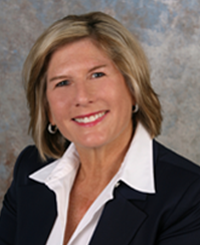What is the New Retirement?
Retirement (n): removal or withdrawal from service, office, or business; withdrawal into privacy or seclusion.
WRONG! With apologies to Webster\’s Dictionary, this is no longer your
father\’s (or mother\’s) retirement. Today\’s retirees, and those
approaching retirement, differ from their parents in a number of
important ways. Baby boomers (those born between 1946 and 1964) are
living longer, perhaps spending 30 or more years in retirement. As a
group, they are healthier, more active physically and mentally, more
affluent, more educated, and more likely to relocate after retiring.
Although seemingly an oxymoron, more Boomers plan to continue working
in retirement and view retirement as a process, rather than an end,
with perhaps several forays into and out of the workforce. Until fairly
recently, virtually all research done about retirement dealt only with
men – it was seen as a male phenomenon. Today, it\’s recognized that
women are retiring, too, and that retirement is often a couple\’s issue
as well.
Retirement is a fairly recent phenomenon; at the beginning of the 19th
century, few people retired, because they simply could not afford to do
so – men and women pretty much worked (inside or outside the home)
until they died. As white-collar jobs replaced a predominantly
agricultural society, however, incomes rose, and people had more money
with which to retire. They lived longer and had more leisure activities
from which to choose. The fairly widespread existence of public sector
pension coverage by 1930, and the advent of Social Security in 1935
also contributed to the ability to retire.
We\’re talking big numbers here. There are close to 80 million Boomers –
someone turns 50 every 7.5 seconds. This huge demographic has been
described as a “pig moving through a python.” The Boomers as a group
have had an enormous effect on society, including health care, housing,
automobile design, technological advances, and purchasing and spending
patterns; their march toward retirement is changing the shape of this
event as well. If you look at Amazon.com, there are more than 6,000
books dealing with retirement; a search of the word “retirement” in
google results in approximately 130 million references! Needless to
say, that is a reflection of the interest in this area.
Many people feel the word “retirement” itself needs to be retired.
Today\’s retirees don\’t fit the porch-rocking, shuffle-board playing,
early-bird dining, silver-haired stereotype of yore. Words and phrases
like “zoomers,” “reengineering or reinventing your life,” and “refire,
don\’t retire” pepper articles and books dealing with retirement. This
time of life can be seen as an opportunity to pursue new careers,
explore ways to reprogram your time, and to nurture and deepen
relationships and your spiritual life.
Using myself as an example, most of my career has been in higher
education – I taught Anatomy & Physiology, Health Psychology, and
Microbiology at the community college level for many years. I\’m a
Boomer myself, married with three children, and have been the trailing
spouse of a CPA husband who has been transferred several times over his
30-some year career. As we moved from place to place, a feeling of
rootlessness emerged – this is one of the events that fueled the
writing of my book, “The New Retirement: The Ultimate Guide to the Rest
of Your Life.” Where would we relocate when we retired? I decided at
the age of 45 to leave education and write a holistic book about
retirement that would be useful for people like me.
With co-author Cathy Fitzgerald, our endeavor for the past six years
has been talking to retirees and those approaching retirement;
researching what psychology and science say about retirement;
evaluating places for retirement by visiting them (that was the
toughest part, but someone had to do it!); finding or designing helpful
worksheets, quizzes, and surveys; ferreting out the best websites,
books, and magazines; asking people to share their true-life
experiences in the form of anecdotes; and integrating all the
information into an easy-to-read, reader-friendly format. Thus was born
our book, “The New Retirement: The Ultimate Guide to the Rest of Your
Life.”
When people are asked in surveys why did they retire, their number one
reason is “to do other things,” followed by “financial considerations.”
What are the “other things” you\’d like to do? Do you want to continue
working? (Although this is an option for some, keep in mind that for
40% of people who plan to continue working, they cannot – they are
downsized, become disabled, or have to care for an aging parent.) We
boomers are shaping the “New Retirement.” The word “retirement” will
never have the same meaning again!


